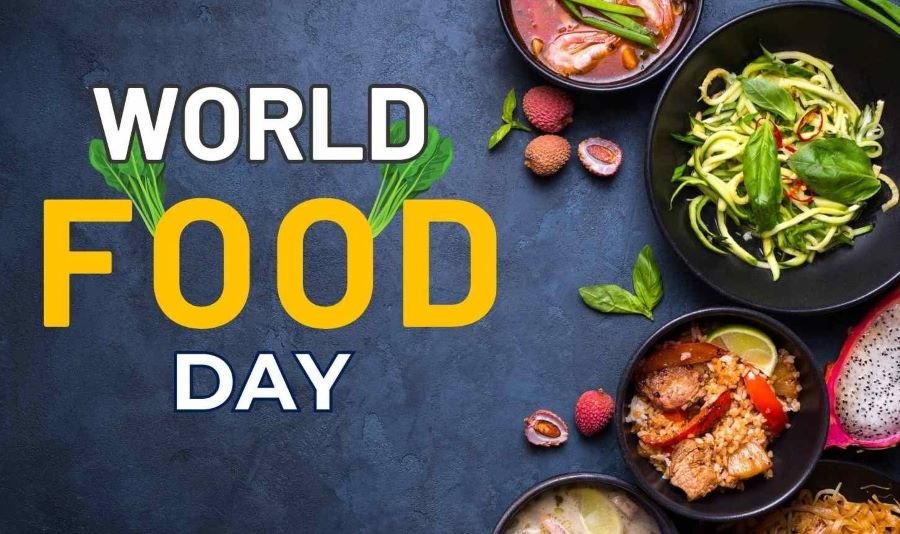By Dr QU Dongyu,
Director Genera,
Food and Agriculture Organization (FAO) of the United Nations
This year, World Food Day emphasizes the theme “Right to Foods for a Better Life and a Better Future.” It serves as a critical reminder that everyone has the right to adequate, nutritious, and affordable food.
Yet, translating this right into reality is a challenge we must collectively confront. The issue is not only about food quantity but also about the diversity and quality of diets available to all.
Currently, farmers around the world produce more than enough calories to feed the global population. However, approximately 730 million people suffer from hunger due to man-made and natural disasters, including conflict, climate shocks, inequality, and economic instability.
Beyond hunger, the stark reality is that over 2.8 billion people cannot afford a healthy diet, leading to various forms of malnutrition.
This means nearly one-third of the global population is not receiving the essential nutrients required for a healthy life, which urgently needs addressing.
Promoting diverse diets is crucial. It’s not just about meeting basic nutritional requirements; it’s also about fostering agrifood systems that are efficient, inclusive, resilient, and sustainable.
These systems must respect traditional food cultures while supporting scientifically backed, healthy dietary practices tailored to personal preferences.
Moreover, the health of our environment, which is integral to food production, relies on biodiversity.
The “right to foods” sets the framework for a just and equitable world, creating responsibilities for governments and stakeholders to ensure everyone has access to diverse and nutritious options.
FAO’s Commitment
The Food and Agriculture Organization (FAO) is focused on transforming the right to food into a reality, despite the numerous challenges encountered.
In regions affected by conflict, efforts are being made to restore agricultural infrastructure to ensure food availability and accessibility. Initiatives such as the Hand in Hand initiative and One Country One Priority Product are designed to strengthen food security and nutrition in the medium to long term.
Furthermore, it is noted that globalization has often contributed to dietary homogenization and associated health issues like obesity and diabetes.
In response, FAO’s school feeding programs are said to address these challenges by sourcing food from local farmers, thereby ensuring that children receive nutritious meals.
Addressing Economic Barriers
Economic factors significantly impact food security. In several African nations, for instance, FAO has implemented cash transfer programs to support the poorest households during periods of hyperinflation, helping them access food.
Climate change also poses a major threat to global food security. To combat this, we have introduced climate-smart agricultural techniques that help farmers adapt to changing weather patterns, ensuring consistent food production.
The Call for Collective Action
Achieving food security is a collective responsibility that extends beyond government action. Global collaboration across all sectors—private, academic, civil society, and individual—can drive significant change. The involvement of youth is particularly crucial, as they are the architects of our future and can shape the outcomes of initiatives discussed at forums like the UN Summit of the Future.
Farmers can adopt sustainable practices that enhance biodiversity. Businesses can work to make nutritious foods more affordable and accessible.
Academia and civil society can hold governments accountable by gathering data and implementing innovative solutions. Meanwhile, advancements in science and technology—including biotechnology, AI, and digital agriculture—will be pivotal in transforming agrifood systems.
As consumers, we also have a vital role to play. By reducing food waste, practicing healthy lifestyles, and advocating for diversity in our diets, we can contribute to a more sustainable future.
A Renewed Commitment
This World Food Day, let us recommit to building efficient, inclusive, resilient, and sustainable agrifood systems that honor everyone’s right to varied and nutritious foods.
Together, we can work towards achieving the 2030 Agenda for Sustainable Development—a promise to take action for people, the planet, and prosperity.
By transforming global agrifood systems, we can realize the Four Betters: better production, better nutrition, a better environment, and a better life for all, ensuring that no one is left behind. Our actions today will shape our future.



